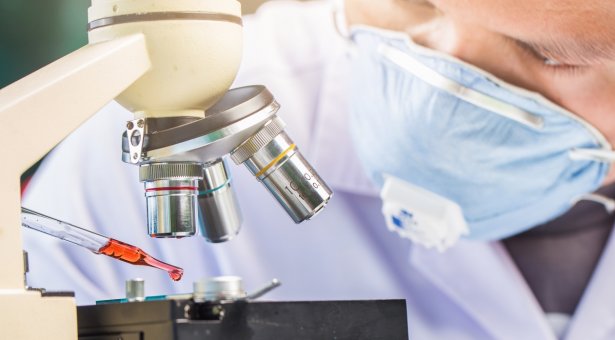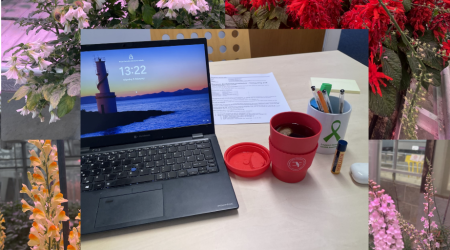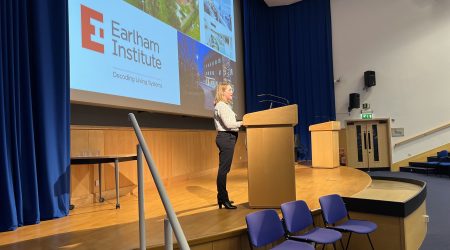Evidence Week 2021

In partnership with the John Innes Foundation, we are taking part in Sense about Science’s ‘Evidence Week 2021’.
Since its debut in 2018, Evidence Week in Westminster has offered the chance for researchers, community groups and parliamentarians to communicate and discuss ideas surrounding science, evidence and policy, helping MPs to gain the tools needed to better scrutinise scientific evidence for policymaking.
Climate change is one of the key themes of this year’s Evidence Week, so we’re bringing our research to Parliament to discuss how we are harnessing the power of plants and microbes to combat climate change.
Our researchers will explain how we are preparing for a changing climate, by ensuring we have crop varieties that are more resilient to the changes this brings. And why we need to develop new agricultural technologies and practices to reduce agriculture’s contribution to the climate emergency.
As part of ‘Evidence Week 2021’ eight of our researchers will be hosting a variety of bookable 1-to-1 sessions, open to MPs, Peers and Civil Servants across 1-5 November.
PhD Student Sam Warner will also be going to Westminster to meet policy makers face to face on Wednesday 3 November.
Researchers offering 1-to-1 briefings
Meetings are bookable by MPs, Peers, their staff, civil servants and local government. You must have a gov.uk email address to book a meeting.
Dr Rachel Wells – Senior Scientist
Reducing chemical usage in agriculture decreases its carbon footprint and protects biodiversity. Banning neonicotinoids for pest control has resulted in a decline in UK oilseed rape crops, damaging industry and increasing reliance on imports.
Rachel is researching plant-pest interactions to support resistant crop breeding as a chemical-free solution.
Dr Noel Ellis – Legume Geneticist
10% of UK greenhouse gas emissions come from agriculture: of this 56% is nitrous oxide from nitrogen fertilizer and 31% methane mainly from ruminants.
Noel and colleagues study the genetics of legumes such as peas, which are protein-rich and can be grown without nitrogen fertilizer, mitigating emissions of both greenhouse gases.
Dr Diane Saunders – Group Leader
Diane’s research focuses on studying emerging plant pathogens that pose a significant threat to UK agriculture. This includes the “polio of agriculture”, wheat stem rust.
Her team are investigating how after many decades of absence, recent changes in climatic conditions may be exacerbating the risk of this formidable foe re-establishing in the UK.
Professor Steve Penfield – Group Leader
Most arable crops in the UK require a period of chilling temperatures to promote high yields, but the timing and intensity of chilling is now affected by climate change.
Steve and his team research how reduced winter chill is affecting crop yields and devise breeding strategies to future-proof crops against warmer winters.
Professor Antony Dodd – Group Leader
Antony Dodd focuses on how plants respond to daily fluctuations in the environment (circadian rhythms).
His team’s research is advancing the vertical farming industry, which is creating climate change-resilience in food supply by producing horticultural crops year-round, using indoor growing systems, while manipulating the flavour, fragrance, nutritional content and appearance of crops to add value.
Professor Wendy Harwood – Head of Crop Transformation
Wendy’s work involves using genome editing techniques in crops.
Genome editing offers a way to create the small changes in crop DNA that lead to useful traits which increase resilience to changing climate. Developing crops this way is precise, and saves many years over traditional breeding methods.
Dr Peter Emmrich – John Innes Foundation Fellow at the Norwich Institute for Sustainable Development
Agriculture is a major source of global greenhouse gas emissions and is the sector most directly affected by climate impacts.
Peter’s work focuses on bringing together bioscience and social science to make agricultural systems more sustainable and resilient in the face of climate change, both in the UK and abroad.
Professor Tony Miller – Senior Scientist
Nitrogen fertilisers are a major contributor to greenhouse gas emissions. But typically 60% of nitrogen fertiliser applied isn’t taken up by crops and leaches into the environment.
Professor Tony Miller is developing new ways to measure soil nitrogen in real time, so we apply only the minimum amount of fertiliser needed.



